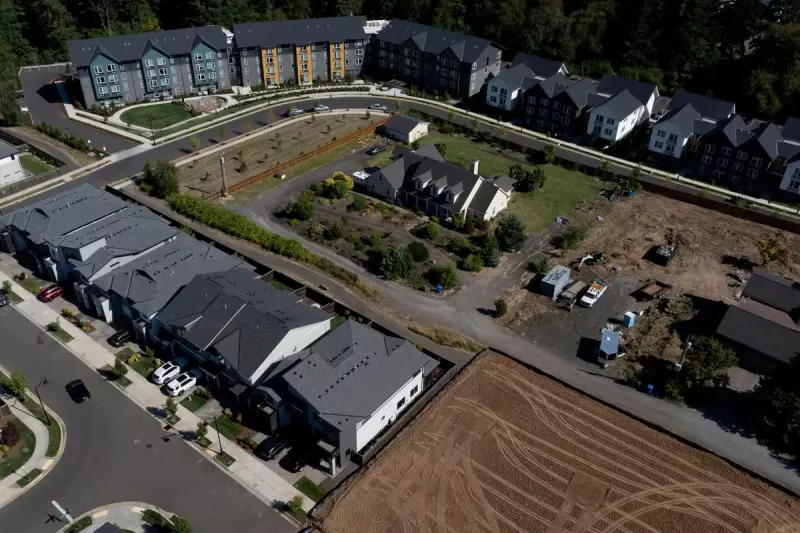
Foreclosure Spike Signals Economic Strain
New data reveals a sharp increase in US foreclosure activity, adding to growing concerns about the nation's economic health under the Trump administration. According to real estate analytics firm Attom, foreclosure-related filings surged by nearly 20 percent in October compared to the same period last year. This marks a significant acceleration in financial distress for American homeowners.
Key Figures from the Housing Market
The statistics paint a clear picture of a cooling housing market facing headwinds. Last month, 36,766 US properties entered some stage of the foreclosure process. This represents not only a 19 percent annual increase but also a three percent rise from September 2025, indicating a steady upward trend.
Rob Barber, CEO of Attom, provided context, noting that while the numbers are rising, "activity remains well below historic highs." He described the trend as a "gradual normalization" as the market adjusts and homeowners contend with elevated costs.
Concurrent data from other sources confirms the challenging environment. Freddie Mac announced that the average 30-year fixed mortgage rate has climbed to 6.24 percent. Furthermore, Redfin reported that home sales were down 0.3 percent year-over-year for the four-week period ending November 9, with properties taking a median of 49 days to sell—the slowest pace for this time of year since 2019.
Broader Economic Context and Political Fallout
This housing data arrives amidst persistent inflation, creating a complex economic puzzle. The latest Consumer Price Index data shows average prices were 1.7 percent higher in September than in January when President Trump took office, and are up three percent year-over-year.
This affordability crisis is having tangible political consequences. Analysts suggest economic worries were a key factor in the Democrats' strong performance in the recent off-year elections. However, President Trump has dismissed these concerns, labelling affordability questions a Democratic "con job" and asserting prices on "everything" are "way down," a claim contradicted by official data.
Compounding the uncertainty, the White House stated that key October jobs data may "likely never" be released due to disruptions from the government shutdown, leaving a gap in the economic picture.
Lisa Sturtevant, chief economist for Bright MLS, characterised the situation as a "double-edged sword" for Bloomberg. She suggested that while economic fears are holding many buyers back, the prospect of continued uncertainty in 2026 might be prompting others to enter the market now to secure current rates and available inventory.
The unease is felt beyond Main Street. Michael Burry, the investor famed for predicting the 2008 crash, has deregistered his hedge fund and is now placing bets against major tech firms, signalling a belief that the US is in the midst of a significant market bubble.





